The Silencing of the Jewish Poet
A new survey reveals an alarming degree of anti-Israel and anti-Jewish bias in American literary circles and institutions
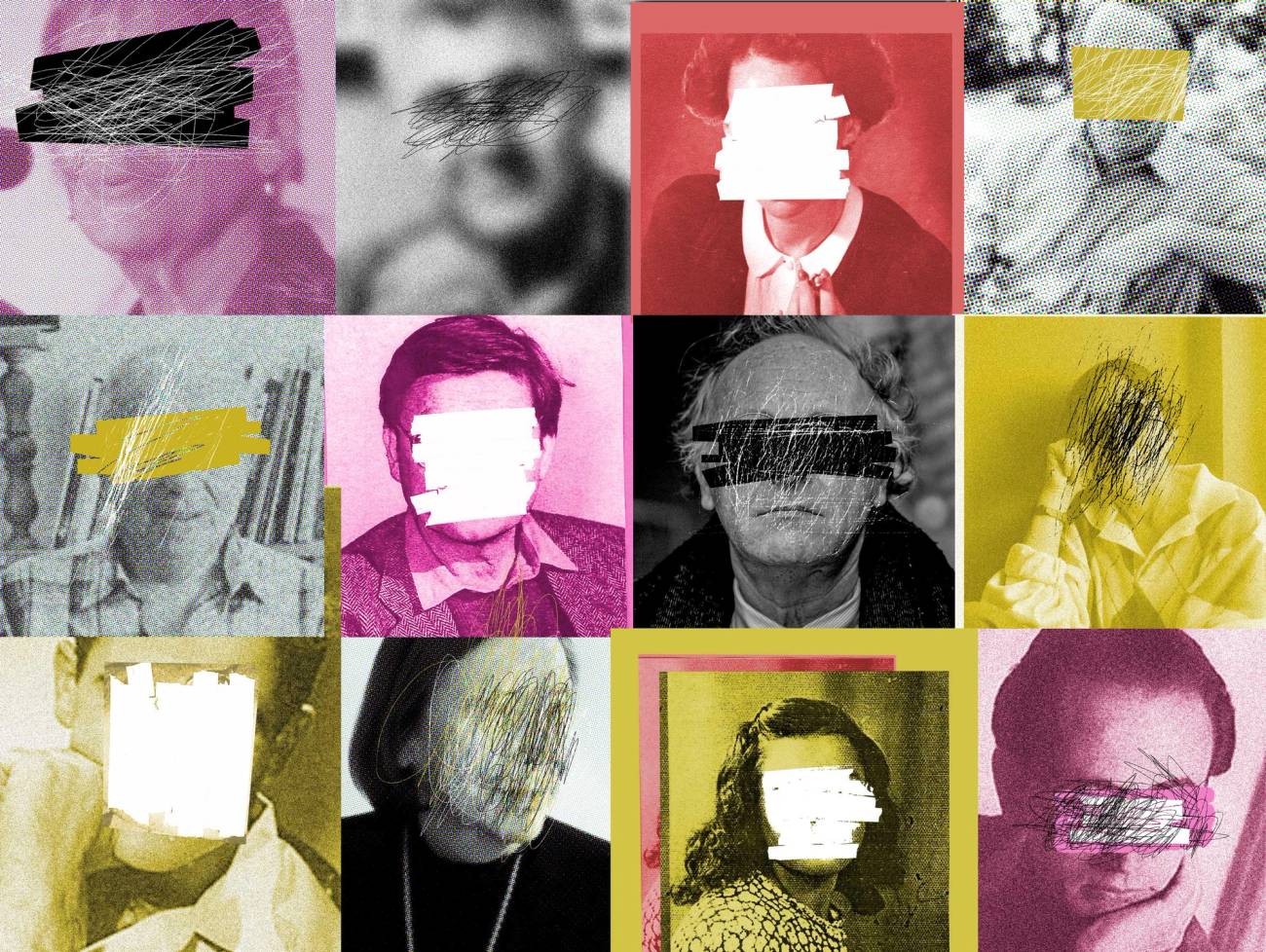
Tablet Magazine

Tablet Magazine

Tablet Magazine
Over the course of February 2024, I had exchanges and conversations, formal and informal, off and on record, with about 90 Jewish poets and translators, the majority of them living in the U.S., although some in Israel. They include some of today’s best known American poets as well as poets who are mainly known to other Jewish poets and readers.
Before I present my findings, I should briefly explain my working understanding of what constitutes a Jewish poet and Jewish poetry in today’s America. As an anthologist of Jewish literature, I have spent years thinking about it. In the broadest sense, as regards a Jewish poet’s origin or identity, it would suffice that they identify or are identified as Jewish either in halachic terms or in other terms (ethnocultural, genetic, ancestral) in which Jewishness may be defined. In a narrower sense, the fact of a poet’s being born or having become a Jew does not automatically make one a Jewish poet. Here other criteria may be considered: engagement of Jewish and Judaic subjects, themes, agendas, or questions and use of Jewish formal or textural elements.
In answering the question “What makes a poet Jewish,” Jessica Jacobs, poet and founder of Yetzirah: A Hearth for Jewish Poetry, recently said, in an interview for Jewish Women’s Archive: “I could mention a particular angle of humor, or craft grounded in trauma and resilience, but for any qualifier I might offer I can then immediately think of counterexamples. In Yetzirah’s reading series, we say that whatever the subject matter—be it politics, getting a tattoo, or even eating a ham sandwich—Jewish poets write Jewish poetry.” Consider also what the Leningrad-born poet Eugene Ostashevsky told me: “While I regard my work as extremely Jewish, it’s not very Jewish by the criteria of U.S. poetry … like I don’t fetishize matzoh balls or write about my grandmother as a source of authenticity. It’s Jewish because of its complexity and ambivalence and historical associations.”
There’s also the matter of a poet’s relationship with Judaism, Israel, and Zionism. In my approach, I was guided by the notion that apostasy, be it religious or political, does not place a poet outside Jewish culture. As I sought to understand how Jewish poets feel in post-Oct. 7 America, I stuck to a broad, open-ended view of a poet’s Jewishness. Most of my hard data comes from responses to “The State of Jewish Poetry in America: A Questionnaire,” with which I approached 120 Jewish poets and translators of Jewish verse (in most cases, the translators are also original poets). The potential respondents were identified to represent some balance of demographic and aesthetic diversity. (For instance, I wanted both Charles Bernstein, a patriarch of American poetic avant-garde, and Jason Schneiderman, who writes sonnets and teaches workshops on this form, to participate.) In search of names, I consulted the Yetzirah Poets Database. Some names were suggested by the Jewish poets I originally turned to with my questionnaire. I also benefited from two recent anthologies, 101 Jewish Poems for the Third Millennium (2021), edited by Nancy Naomi Carlson and Matthew E. Silverman, and Breaking the Glass: A Contemporary Jewish Poetry Anthology, published as a special issue of Laurel Review (fall 2023) and featuring works by 72 poets. I did not deliberately exclude Jewish poets who have spoken out against Israel and Zionism, although some of the poets’ refusals to participate were likely politically motivated.
My final response data consisted of 70 questionnaires as well as extensive comments submitted by Jewish poets who did not wish to fill out a formal questionnaire. Fifty poets I approached did not end up participating. The specific reasons for not participating ranged from being overextended to not liking the questionnaires to fearing reputational or professional damage. Two poets sent vehemently angry declines, one deeming the questionnaire “insultingly reductive,” the other accusing me of asking “leading” questions. Each potential participant was sent one to two reminders to confirm the outcome. The response rate was over 58%, and I was surprised and pleased with the level of enthusiasm among the poets I approached.
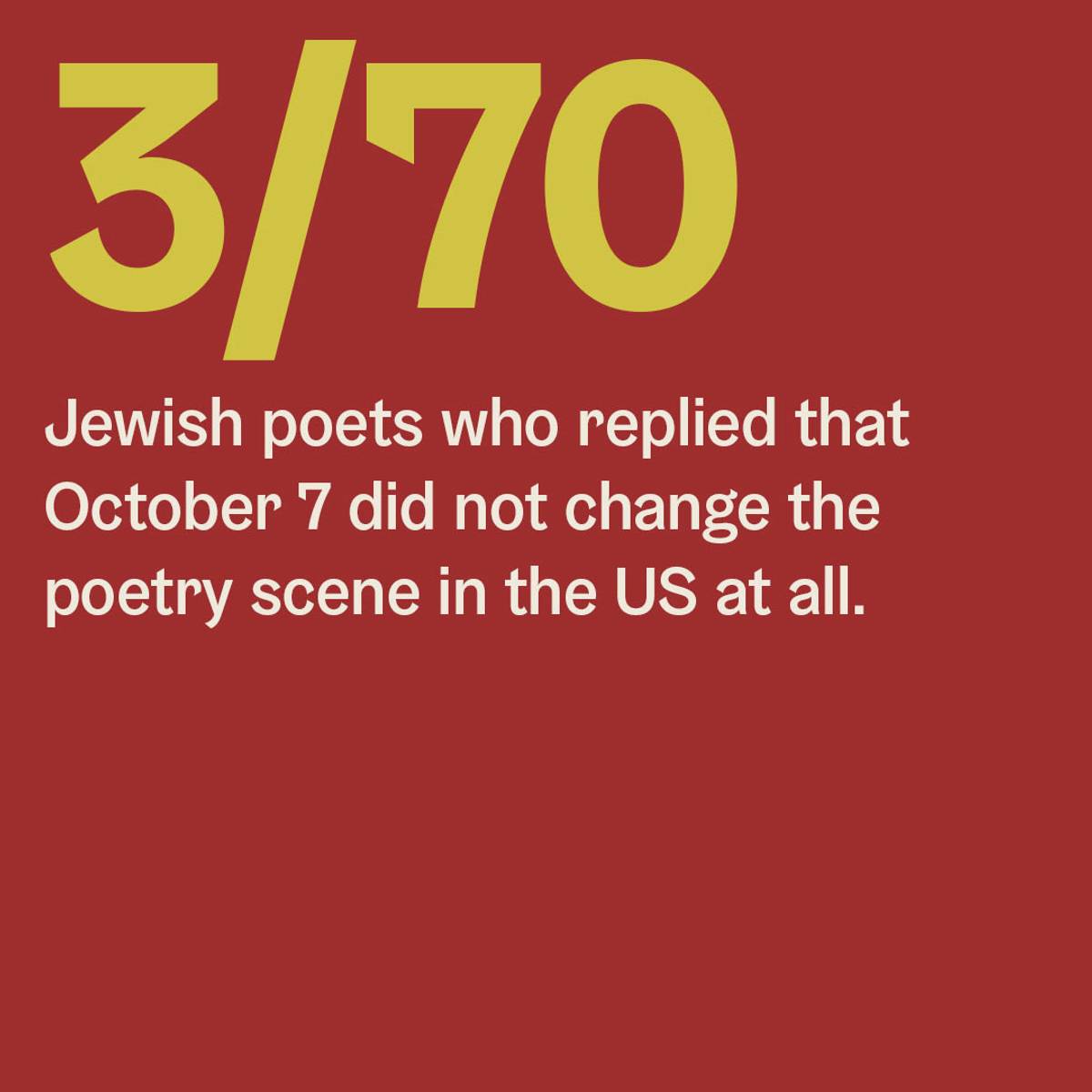
The questionnaire consists of eight questions, three quantitative and five qualitative, and a consent clause to have comments attributed in print. As is not infrequently the case in such questionnaires, some questions were left unanswered. Of the 70 respondents, 25 gave an explicit “yes” to being identified, five consented to being quoted anonymously, nine conditionally, and 31 gave a hard “no.” “I get quite enough hate mail as it is,” one Jewish poet wrote in. “I’d be happy with ‘an accomplished Jewish poet and writer’ or any such euphemism. If my comments are circulated, it would threaten my professional reputation,” another Jewish poet explained.
The qualitative results of the survey form a complex and nuanced picture. Two questions were formulated to cast a longer view, connecting the “past 3 years” covered in the quantitative questions to the “present.” In the first question, Jewish poets were asked: “Are poetry editors and poetry book publishers in the US presently receptive to Jewish poets and Jewish poetry?” Here only about one-third of the respondents answered “yes,” several offering an explanation or trying to reckon with the impact of Oct. 7. “They are receptive to good poetry, if they know what they’re doing, regardless of religious or cultural content,” answered the poet Jay Rogoff. “Most of the journals I submit to have no problem publishing poetry with Jewish themes or content. I review who they publish, and the poems themselves before I submit,” the poet Valerie Bacharach reported. As the poet Eve Grubin put it, “Yes, I believe the editors were receptive to Jewish poetry and poets, but that has changed since October 7th.” Nearly one-half of the respondents answered with either a sharp “no” or a nuanced “no.”
Poets report having difficulty finding a U.S. publisher for a book and poems with Jewish themes. “For the most part, many secular journals seem to view Jewish-themed work as political and are not as receptive as they were before October 7,” observed the poet Liz Marlow, founder and editor of Minyan: A Literary Magazine in Support of the Jewish Community. Jewish poets note a divide in the literary community. “A number of editors, literary magazines, and publishers have put out statements, or signed petitions since Oct. 7th that I consider antisemitic. I would not send my work to those journals (or subscribe) on principle, so I have no way of knowing whether they would be receptive to work by Jewish poets. On the other hand, other journals realize that poems by Jewish poets are more necessary now than ever,” explained the poet Richard Michelson.
Of the ones who see the editors and publishers as not receptive or less receptive to Jewish poets and Jewish poetry, a significant group emphasized a post-Oct. 7 change. “From what I see […] Jewish/Israeli content is not particularly desirable for publishers at this time,” the poet Margaret Kerr-Jarrett indicated. An anonymous Jewish poet voiced a resonant sentiment: “Post October 7th, so many presses have come out with pro-Hamas or one-sided statements about Gaza, that I have stopped submitting. I feel disgusted and betrayed and have no desire to have my work published in these places.” Another Jewish poet stated anonymously: “Less so now than in the past, now that Jews have been given labels as white and colonizers. And perhaps even less so after Oct. 7.” Finally, some of the Jewish poets emphasized the importance of literary publishers with a commitment to Jewish writing, above all Ben Yehuda Press, Four Way Books, and Ayin, and of several literary magazines, notably Image, Tiferet, and Vita Poetica, as venues for spiritual writing, including Jewish spirituality.
I deliberately devoted a separate question to literary translation, with a specific view to Hebrew and Yiddish poetry: “Are poetry editors and poetry book publishers presently receptive to translations of Jewish and/or Israeli poets?” Here, only about half of the respondents answered “yes” with some qualifications. “Especially translations of contemporary European Jewish poets. Especially translations recovering the work of poets who lived before or during the Shoah, especially recovering work hitherto unknown,” the poet Judith Baumel indicated. At the same time, the “no’s” were hard and unambiguous. “Aside from Jewish themed journals, no,” wrote the poet Henry Israeli. A Jewish poet who wished to remain anonymous commented: “Unless the Jewish/Israeli writer states views that are ‘correct’ (i.e., anti-Israel) and can be used as a token to prove that the publication is not antisemitic, there is little interest in Israeli or Jewish perspectives.”
Some of the respondents pointed out that it might be too early to draw conclusions about the emerging, post-Oct. 7 patterns in Jewish poetry publishing. Indeed, an average cycle of submission takes six months, longer with book publishers and some of the most prestigious quarterlies and trade magazines that publish poetry. This suggests that the situation described by a majority of the respondents is likely to get worse in the near future.
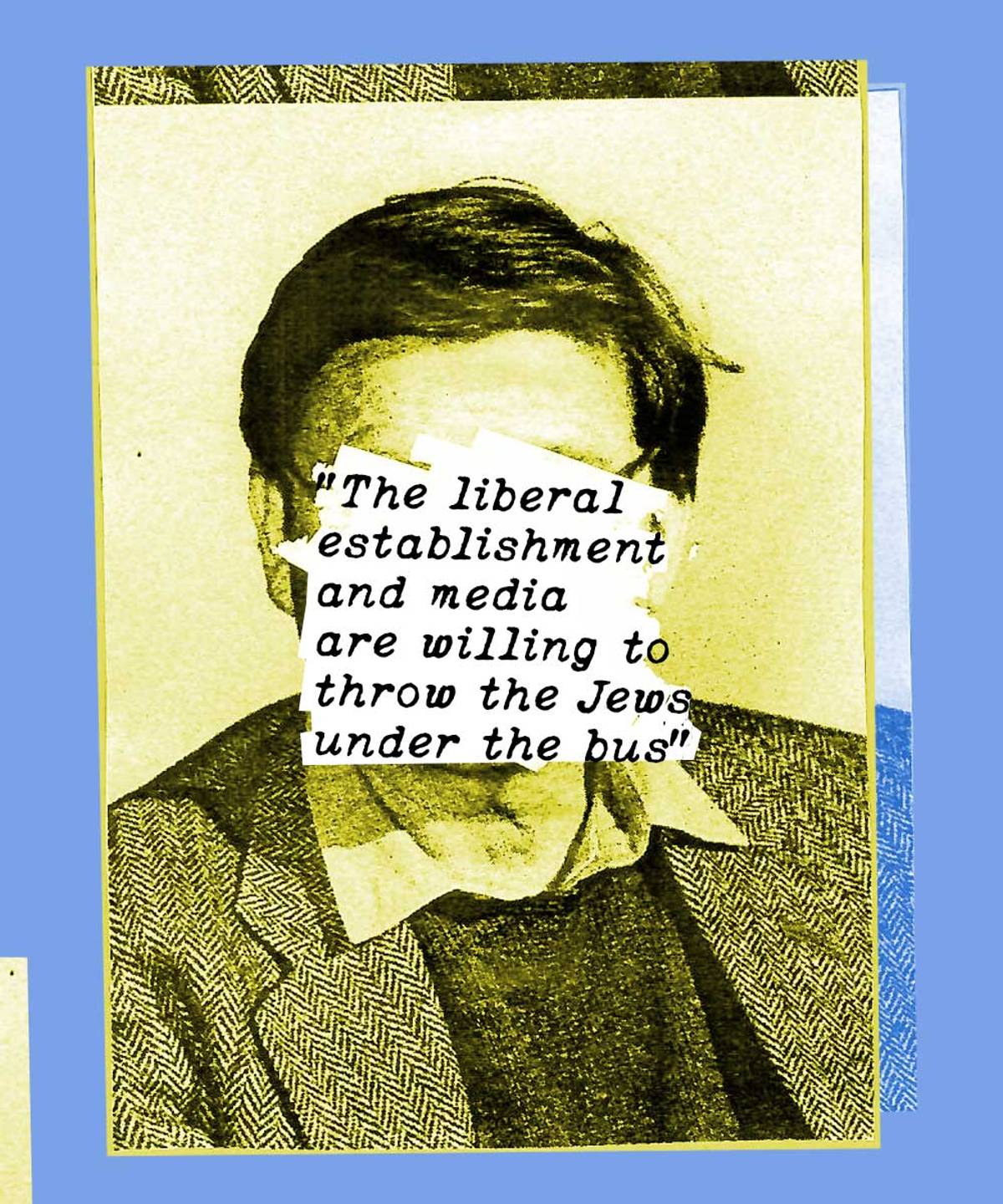
Tablet Magazine
The last two questions specifically asked Jewish poets to assess the post-Oct. 7 climate. I will summarize the responses through snapshot thematic clusters. In answer to the question “How, if at all, did October 7th change the climate of poetry publishing in the US?” only three out of 70 Jewish poets replied that they are “not experiencing any effect” on the poetry scene. Half of the respondents spoke of a negative change; some also referred to some oddly positive changes for Jewish poets and Jewish poetry.
As the poet Beth Morris put it, “The anti-Israel, anti-Jewish sentiment in the literary community writ large is evident.” A respondent who asked not to be identified, characterized the symptoms of the new hostility that Jewish poets are experiencing:
[Oct. 7] created a crisis. Suddenly, to be woke, and everyone wants to be woke, you had to decry Israel—and even mount preemptive defenses of Hamas’s attack of Oct. 7. If you indicated sympathy for the Jewish state (e.g. ‘I stand with Israel’), you opened yourself to rants, assaults and even calls for boycott. The hostility to Jews, especially those who are sympathetic to Israel and Zionism, is palpable.
A poet and translator of Israeli poetry, who asked to remain anonymous for fear of “being even more cancelled,” characterized the change as oppositional:
I think Israel has been blackened and the poetry industry has adopted the Palestinian narrative, as victims of white Zionist colonialists, ignoring the Jewish story and the fact that half of Israeli society are from Arab lands and Iran. It certainly feels unwelcoming to submit when Palestinians are especially invited to submit as if we and our history and our story is completely erased.
Some Jewish poets feel that poetry publications are actively discriminating against Jewish and Israeli content, and against Jewish American poets who stand with Israel. Jewish poets collectively articulated the sense of an unfolding literary confrontation, in which the poetry community is antagonistic toward things Jewish and Israeli, and in which some poetry publishers make pro-Palestinian declarations while failing to implicate Hamas for its responsibility in causing the Israel-Hamas War, and in which many American poets have signed antisemitic petitions. In this connection, several respondents privately expressed anxiety over being unable or unwilling to say in public that they are experiencing anti-Israel targeting, antisemitism, and cancellations.
Jewish poets also report being “disgusted and betrayed” with one-sided or pro-Hamas statements of some publications and feeling unwelcome at literary venues, cultural organizations, and publications. A Jewish poet did not want these powerful words attributed:
At this point, I have withdrawn from the literary community. I have stopped submitting, and stopped reading a lot of journals. I only feel safe with other Jewish writers. Maybe when the war is over I will have the emotional energy to reengage, but the poetry world currently feels like poison.
Poets commonly speak of having stopped submitting, at least temporarily, or of preemptively excluding works with Jewish and Israeli content from their submissions. “A lot of journals and people I admire have been so vocally anti-Israel and completely unsympathetic to Jews and Israelis that I feel less and less interested in engaging in their gatekeeping ploys,” stated the poet Margaret Kerr-Jarrett. The poet Julie Knobloch noted “a strong bias against Jewish voices in the non-Jewish literary world,” whereas another Jewish poet put it in starker terms: “Writers have been pilloried for openly condemning antisemitism, or for standing with Israel.” As a result, Jewish writers also report feeling “silenced.” “I’ve begun to self-censor what I read at poetry events, except for Jewish/Israel-based groups,” the poet Beth Morris reported.
“I do feel there has been a change,” the poet Clint Margrave wrote about the supercharged, polarized poetry community after Oct. 7: “The US poetry world feels nearly monolithic in its support of and empathy for the Palestinians over support of or empathy for Israel. […] Also, many magazines felt forced to make statements of solidarity with the Palestinians and some poetry editors even resigned from magazines that wouldn’t.” Another Jewish poet anonymously characterized today’s poetry community as “wildly anti-Israel.”
A majority of the respondents find that American poets are “largely supportive of Palestine and critical of Israel and the IDF”; the respondents noted that some American poets have been making “antisemitic comments and lumping all Jews together as supporters of the Israeli military.”
A minority of respondents suggested that while many in the American literary community were sympathetic to Israel following the Hamas attack, Israel’s continuing military response in Gaza has turned many poets and editors, including Jewish ones, against Israel, in turn resulting in the increase of antisemitism in the literary circles.
Several Jewish poets emphasized that traditional alliances with the left have changed. Linked to this point is also the sentiment, ruefully voiced by Jewish poets who do not consider themselves Zionists or ardent supporters of Israel, that in the eyes of many American poets, and especially younger ones and poets of color, all Jewish poets—and all Jewish poetry—has become suspect. “I feel that among poets of color there is probably pressure to capitulate to antisemitic or anti-Israeli sentiments (because Israel is being portrayed as a colonizing white power),” stated one Jewish poet.
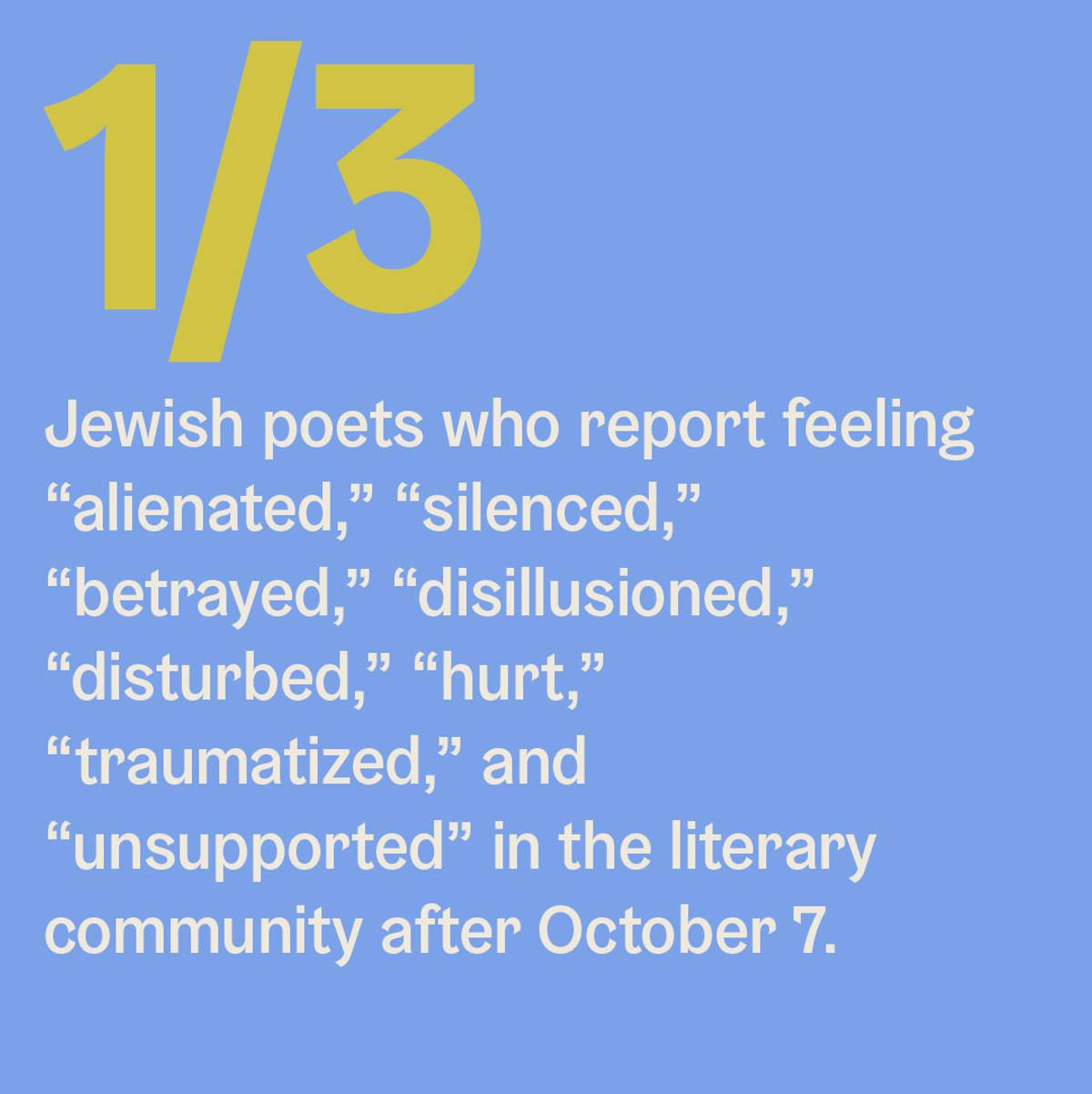
Wanting to probe further the question of the Jewish poets’ changed and changing triangulation between the United States, Jews, and Israel, I asked: “How, if at all, did October 7 change your own professional relationship with the literary community in the US?” Here 10% of the 70 respondents answered with a sharp or qualified “no,” although not all of them for the same reasons. “I’ve always made my support for Israel known,” the poet Susan Comninos explained. “So nothing has changed for me.”
At the same time, one-third of the respondents report feeling “alienated,” “silenced,” “betrayed,” “disillusioned,” “disturbed,” “hurt,” “traumatized,” and “unsupported.” Jewish poets voice frustration that even their colleagues who “are not against Israel” nevertheless “express this feeling, and their support, only privately.” “Something inside me broke in the days following October 7th,” the poet Margaret Kerr-Jarrett explained. “People who I previously wanted praise and validation from are no longer important to me. I am unsure what I want my relationship with the literary world to look like moving forward. I feel deeply hurt and unseen.” Another Jewish poet commented:
I feel totally cut off from the larger literary community right now. People I thought were friends or allies have been either hostile or indifferent to Jewish points of view. Others might be supportive, but they’re unwilling to speak out in defense of Jewish writers. Supporting Palestinian and Palestinian American writers is seen as unbiased. Supporting Jewish voices is seen as “taking sides.”
Linked to the articulation of this double standard is also the insistence, by a few of the respondents, that they have remained “attuned” to the suffering of Palestinian and Arab poets—that in contrast to the dearth or absence of empathy toward Israeli and Jewish poets. Jewish poets with strong Israeli connections and translators of Hebrew poets have expressed much angst. A poet living in Israel did not want their comments attributed for fear of being “even more cancelled”:
I know that many of my friends are hiding their affiliations with Israel. They are scared to speak up and ruin their careers. I do worry if I will have my books rejected because of living in Israel because I cannot be silent after Oct. 7, because I believe in Israel having every right to protect herself. I want to be a proud Jew. I want to be a writer who is not scared of being all of myself, and sharing all of myself with the world, which includes my important Israel connection. […] I want to give others strength that it’s okay to support Israel.
While respondents stress that this is an evolving situation, many speak of having lost faith in fellow poets. Consider the anonymous comment by a Jewish poet:
I am also dismayed by the ways in which so many individuals in the US literary community have misemployed, with possibly pernicious results for Jews worldwide, words such as “genocide,” “colonizer,” “apartheid,” “Holocaust,” “Nazi,” and “racist,” among other terms. The misuse of these words—the lack of nuance and complexity with which so many poets and writers are now employing the words in relation to the Israel-Hamas War and to the horrible situation in Gaza—is shocking and traumatizing to me, as is the US literary community’s largely unexamined and inappropriate (dangerous, in fact) application of American race politics and theories onto the situation in the Middle East.
Jewish poets report having little room for nuance and self-contradiction, which is the life’s blood of most good poetry. As the poet Olga Livshin put it, “I have a position that, I hope, is a bit nuanced, but right now there is no space for such a position; people compel each other to commit to one side, and to choose the very extreme of it.” Many of the respondents also report being paralyzed by statements posted or letters signed by colleagues they have previously felt aligned with: “I feel uncomfortable seeing posts by colleagues I agree with on most other issues,” said a Jewish poet who wished to remain anonymous. “I have seen a great deal of offensive propaganda from the poetry community on social media,” the poet Deborah Lepziger attested.
In this connection, I was particularly intrigued by the comments of Jewish poets who sought to make a personal distinction between either individual poetic colleagues versus the larger poetic community or between national and local trends. “There are individuals whose attitudes have alienated me, but as yet my relationship to the community such as it is has not changed,” stated one Jewish poet. “[T]he progressive community has shunned me. So far, the (local) poetic community has not,” the poet Rhonda Rosenheck summarized her post-Oct. 7 experience.
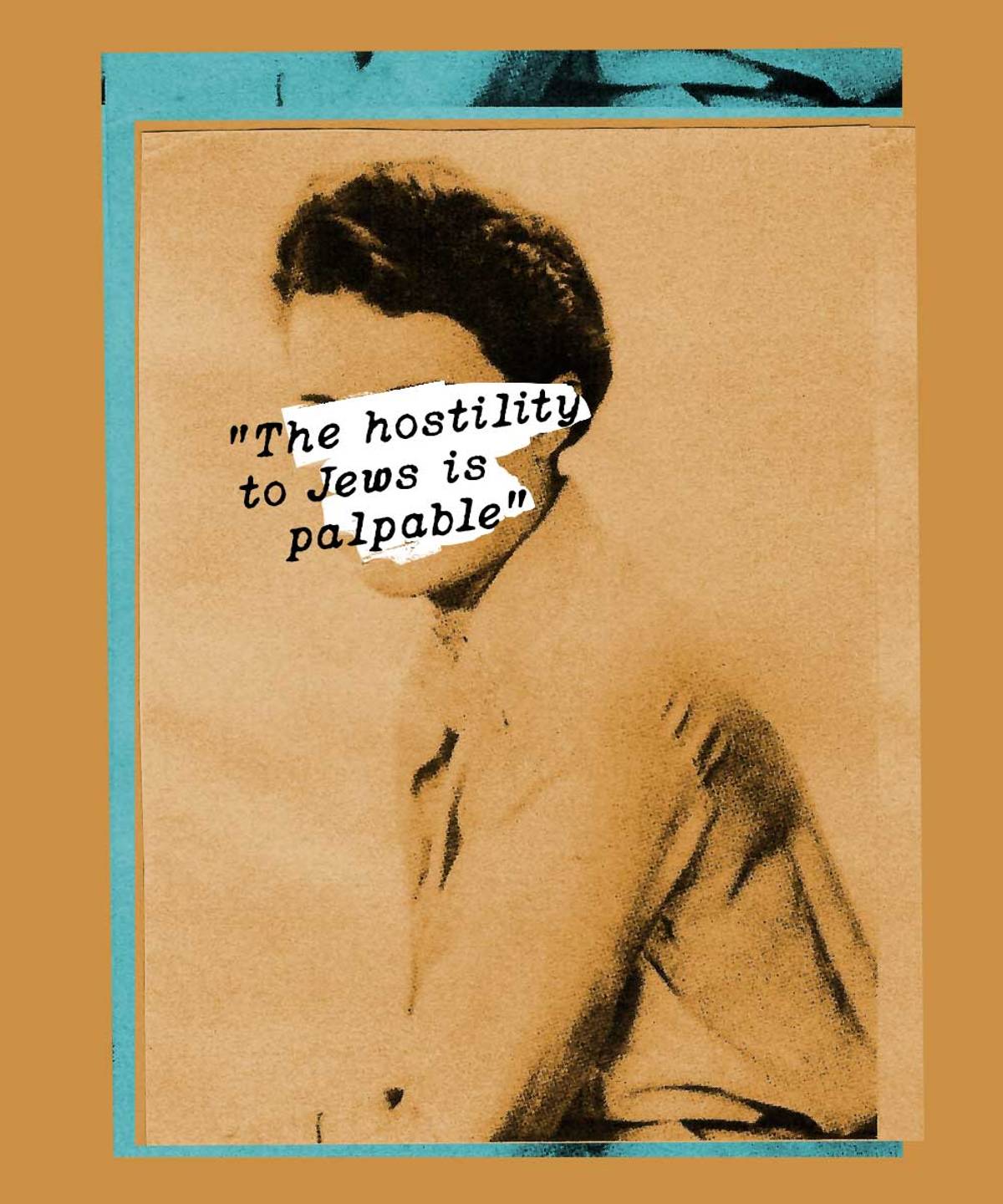
Tablet Magazine
Some hope does remain even in these dark times for Jewish poetry. A handful of Jewish poets noted a catalytic effect of the new climate on their creativity and resolve. The poet Matthew Lippmann spoke of a new resolve: “In my experience since Oct. 7 there has been a much more robust need and desire to get poems with/of Jewish content (about the war and about matters around being Jewish) out there, published. […] If anything, it has amped up my desire to send work out that has Jewish content as if to say to the literary community, Hey people, we ain’t going nowhere.”
A Jewish poet who has not personally had negative experiences defined the moment as “an important one to reaffirm my Jewish identity in my work, and I’ve been grateful for the welcome it has received” from the poetry community. Another Jewish poet, who has “published with some non-Jewish sources successfully,” expressed “hope, that it’s not the entire literary world who is gaslighting us.” The poet Clint Margrave had “both positive and negative experiences”: “A lot of the negative experiences come from what I’ve read online by extreme factions of the community. I know a number of poets/editors in the real world who are more thoughtful, nuanced, and supportive. […] I think the decent members of the community, no matter their stance on Israel/Palestine, have all been appalled by the rise of antisemitism. But sadly, the louder, more extreme voices in the community seem to win out online.”
Several Jewish poets resorted to poignant historical or literary parallels to explain their understanding of the post-Oct. 7 atmosphere. Jewish poets refer to Orwellian language in employ of those in the poetry community who stand against Israel. The poet David Biespiel referenced Soviet literary culture as he assessed the conduct of many American poetry institutions and organizations since Oct. 7:
The literary community in the United States, like other communities, moves as a swarm moves. Not true for every entity. But it’s not sad so much as, worse, predictably sad that some communities have gone full Union of Soviet Writers over and over again in reaction to complex, painful national and world news: absolute party and state control in the field of literature, obligatory fealty to the point of denial of opportunities for publication, and slavishly tendentious (to borrow that old Union of Soviet Writers word). I like to think this will pass, for good or for ill.
Almost a third of the 70 respondents emphasized the role of Jewish publications and Jewish literary spaces post-Oct. 7. Conceived back in 2017 as a gathering platform and a tabernacle for Jewish poets, and featuring a series of online resources and an extensive database of Jewish poets, Yetzirah runs poetry readings and features publications by Jewish poets. It held its first conference in the summer of 2023. The poet Maya Bernstein, who is on Yetzirah’s board, summed up the role of the organization: “I think that Yetzirah’s existence […] was born from feelings of unfriendliness/antisemitism/unreceptiveness to Jewish poetry, and that Oct 7th has magnified this tremendously. We’re trying to make space for Jewish poetry and poets in this climate.” By and large, Jewish poets view such Jewish venues as open and tolerant, although a fraction of the respondents voiced concerns that even Jewish spaces do not—or may not welcome—poems that are “too Jewish” or too Judaic.
Yet success stories aside, one of the realizations one makes in surveying American Jewish publications is that the space for Jewish poetry has catastrophically shrunk—even though Jewish poets and readers alike need Jewish publications where works by Jewish poets and, moreover, works with Jewish poetic content, regularly appear. Some of the Jewish periodicals that used to publish poetry almost in every issue have closed down, as Midstream did in 2013, whereas others got out of the poetry business. Others, such as Moment, do not publish poetry in every issue. Of the old guard of American Jewish periodicals, only Lilith, the “independent, Jewish & frankly feminist magazine,” still publishes poetry with regularity—in a feature edited by the poet Alicia Ostriker.
Of Jewish periodicals with sizable audiences, Tablet regularly publishes articles on poetry and poets, with a lesser emphasis on publishing Jewish poetry. The Forward does not publish poetry, although in its Yiddish incarnation it was famously a home for great Jewish writers. Jewish Currents does publish poetry, but this Menshevik magazine caters to an audience of anti-Zionist Jews and regards the arts in general as an adjunct to its political program.
Perhaps the most damaging impact of the wave of anti-Jewish and anti-Israel feeling that has swept through the landscape of American poetry is on the very state of Jewish poets, who feel themselves called on either to affirm or to reject the political frameworks being imposed on them by Jew-haters and Israel-haters. In an atmosphere of aggressively politicized, career-ending hate, it becomes harder for poets to be poets.
In the post-Oct. 7 climate, Jewish poets feel ever more acutely the urgent need for literary publishing spaces with a dedicated Jewish mission and without a prescriptive hostility to Israel. One would be remiss here not to acknowledge the post-Oct. 7 periodicals and projects, of which there are bound to be more, with an overtly Zionist and pro-Israel mission. Here I will highlight three such initiatives, all of them launched in early 2024: Green Golem: The Zionist Literary Magazine, founded by the American Jewish writer Alex Horn, Iron Words Israel War Stories, founded by Hila Bar, a South African Jew who made aliyah and lives in Israel, and OfTheBook, founded by the British Jewish writer and translator Susie Gordon.
These post-Oct. 7 literary venues seek poets who aspire to go beyond what we have become so good at after centuries of living in non-Jewish societies: the art of Jewish apologia.
Author’s Note: In working on this essay and preparing and analyzing the questionnaire, I benefited greatly from the advice of Dr. Karen E. Lasser. I acknowledge the generous contributions of all the Jewish poets who responded to my request, the information I gained from Yetzirah’s Jewish Poets Database, and the wealth of knowledge that Dr. Erika Dreifus provides in her newsletters.
Maxim D. Shrayer is a bilingual author and a professor at Boston College. He was born in Moscow and emigrated in 1987. His recent books include A Russian Immigrant: Three Novellas and Immigrant Baggage, a memoir. Shrayer’s new collection of poetry, Kinship, will be published in April 2024.